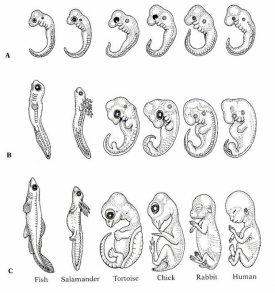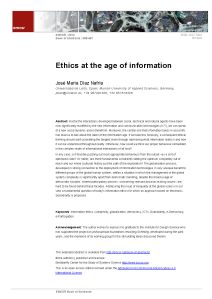
Haeckel’s 1874 version of vertebrate embryonic development
By: José M. Díaz Nafría (Universidad de León, Spain; University of Santa Elena (UPSE), Ecuador; Munich University of Applied Sciences, Germany)
Chapter published as: DÍAZ-NAFRÍA, J.M. (2017). eSubsidiarity: An Ethical Approach for Living in Complexity. En W. Hofkirchner, M. Burgin (eds.), The Future Information Society: Social and Technological Problems, Singapour: World Scientific Publishing. DOI: 10.1142/9789813108974_0004.
Abstract: It is needless to insist on the significant increase of the complexity we are living in. Whereas the social order arisen with modernity encompassed – at the level of the nation-states – a reduction of social complexity through cultural normalization, the new social and political order is nowadays, as a consequence of globalization, to be intercultural, multilingual and even multi-national. We may encounter a different way of diminishing the complexity at the level of the human agency, but we have to do it in a different way as modernity did it. The management of information and complexity in biology provides some clues to this endeavor. As we see, living beings through its management of complexity enact the subsidiarity principle that can equally be applied to the organization of decentralized political systems. It enables the decrease of complexity at the level of the heterarchical organized agents, while preserving the complexity at the global level. eSubsidiarity was essayed in Allende’s Chile following Stafford Beer’s Viable System Model and in many other human organizations. Could it become a new ethical paradigm at the information age?



